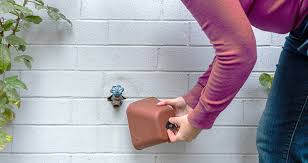Introduction
Pigeons, ubiquitous in urban landscapes, can become more than just a picturesque part of the scenery. They bring with them a host of problems ranging from property damage to health hazards. However, employing pigeon deterrents can significantly mitigate these issues. In this comprehensive guide, we delve into the dangers posed by pigeon infestations, explore effective deterrent methods, and emphasize the necessity of proactive action.
The Dangers of Pigeon Infestations
Pigeon infestations transcend mere inconvenience, posing substantial risks to human health and property integrity. Here’s a closer look at the perils associated with these avian invaders:
Health Hazards
- Bird Mite/Fleas: Pigeons can harbor bird mites and fleas, causing discomfort and allergic reactions in humans. Controlling these pests becomes paramount to prevent their rapid proliferation.
- Psittacosis (Pneumonia): The presence of pigeons can introduce psittacosis, a bacterial infection leading to severe pneumonia. This underscores the urgent need to address pigeon infestations.
- Chlamydiosis (Influenza): Pigeons also carry chlamydiosis, manifesting flu-like symptoms in humans upon exposure. Preventing contact with infected droppings becomes imperative.
- Salmonella: The risk of salmonella contamination rises in areas frequented by pigeons, necessitating stringent control measures to safeguard public health.
- Tuberculosis: Pigeons serve as carriers of tuberculosis, a potentially debilitating bacterial infection. Mitigating pigeon presence can help curtail the spread of this disease.
Property Damage
Apart from health concerns, pigeon infestations wreak havoc on properties:
- Structural Damage: Pigeon droppings and nesting materials can corrode building materials over time, leading to structural degradation.
- Clogging and Blockages: Nests obstruct gutters and drainage systems, exacerbating water damage and facilitating mold growth.
- Vehicle Damage: Pigeon droppings, if left unchecked, can corrode vehicle surfaces, necessitating costly repairs.
Most Effective Pigeon Deterrents
To combat pigeon infestations effectively, deploying suitable deterrent methods is crucial. Here are some highly effective solutions:
1. Bird Spikes
These protruding rods thwart pigeon landings, making them unsuitable for perching and roosting.
2. Pigeon Netting
Durable netting forms a physical barrier, preventing pigeons from accessing vulnerable areas like rooftops and balconies.
3. Ultrasonic Devices
These devices emit high-frequency sound waves, imperceptible to humans but discomforting for pigeons, deterring their presence.
4. Visual Deterrents
Utilizing reflective surfaces or predator models creates illusions of danger, prompting pigeons to avoid the area.
5. Anti-roosting Gel
A sticky substance applied to surfaces, this gel renders perching uncomfortable for pigeons without causing harm.
6. Pigeon Repellent Spray
Chemical sprays emit odors or tastes repugnant to pigeons, dissuading them from roosting on treated surfaces.
Conclusion
In conclusion, the menace posed by pigeon infestations necessitates proactive measures to safeguard both health and property. Implementing pigeon deterrents such as bird spikes, netting, ultrasonic devices, visual deterrents, anti-roosting gel, and repellent sprays is crucial in curbing their proliferation. By taking decisive action, individuals and communities can effectively mitigate the risks associated with pigeon presence, ensuring a safer and healthier environment for all.
Finally, contact The Exterminator Pest Control for professional pigeon deterrents services now! We treat our clients as friends requiring pest control services. Also, we are available 24/7 and don’t charge additional call-out fees.



